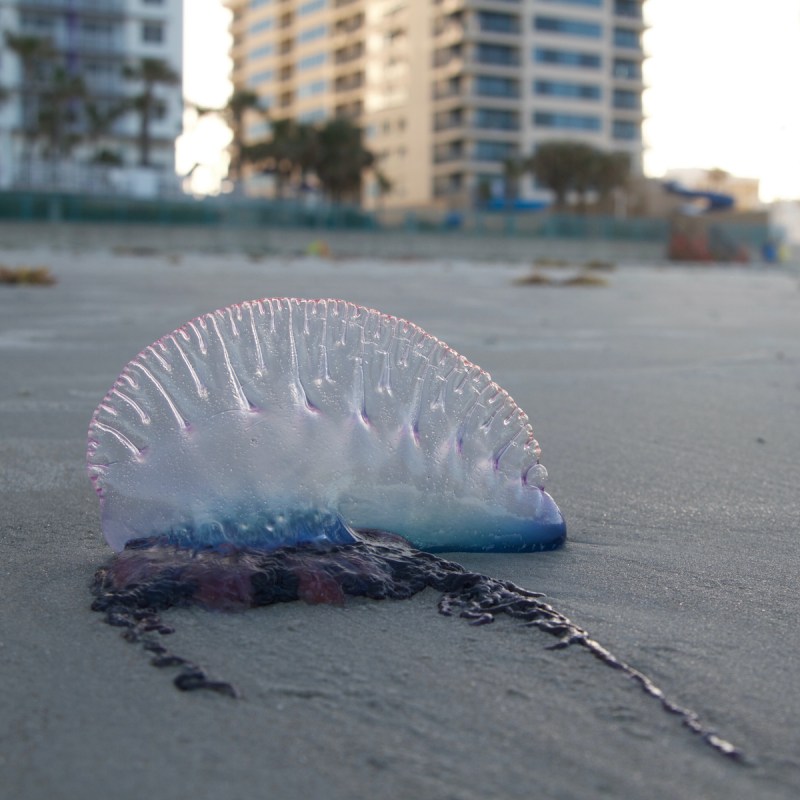
A new danger is washing ashore at some East Coast beaches. Portuguese man-o-wars are popping up and can cause issues — even after they’re dead.
Videos by TravelAwaits
Beach Danger
Right now, purple flags are flying over some Florida and South Carolina beaches, warning beachgoers of dangerous marine life in the area. That’s after numerous reports of Portuguese man-o-wars in the water and washing ashore. And while a sting from this jellyfish-like creature won’t kill you, scientists warn that it will be very painful and itchy.
A Portuguese man-o-war looks like a balloon. They are pretty to look at because they are shiny and can be blue, violet, or pink, but experts say they are some of the most toxic animals in the world, with venomous tentacles reaching up to 165 feet. The toxic cells can even fire even after they are dead, meaning if you see one — dead or alive — don’t go near it!
Portuguese man-o-wars cannot move themselves and rely heavily on water currents to move around. Scientists say they are present in every ocean but prefer tropical and subtropical waters. And if you see one, there are likely many more nearby. Experts say Portuguese man-o-wars often travel in groups of up to 1,000 or more.
What To Do If You Get Stung
If you do get stung by a Portuguese man-o-war, remember stings are very rarely fatal to humans. Try to get the attention of a lifeguard right away. Also, try pouring vinegar on the affected area to neutralize the venom. Be careful not to touch the sting; instead, use something to scrape off any cells that may still be on your skin. Hot water will also help kill any cells that haven’t fired yet, so try soaking the affected area. If the itching bothers you, try an antihistamine. It may also be a good idea to go to a doctor to get it looked at, just in case.
To continue to stay up-to-date with all Travel News, check out these articles:
